The Best Books for Teens with Anxiety Picked by an Expert
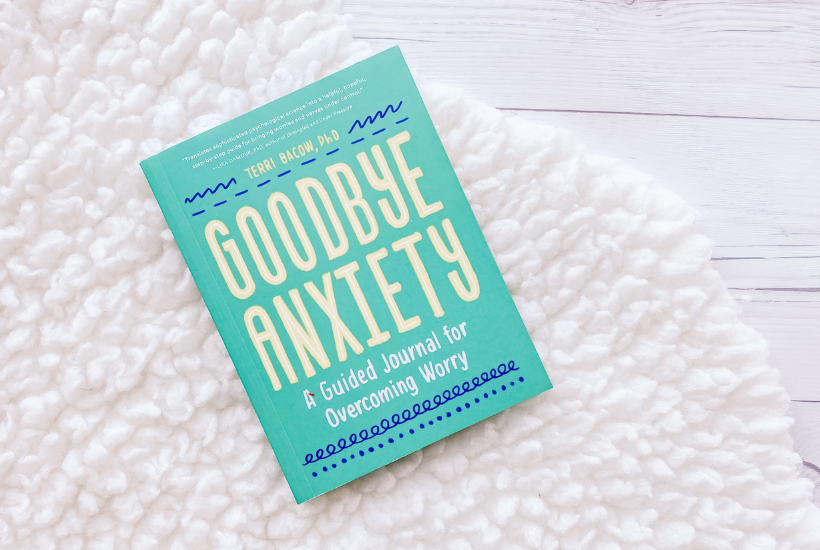
**SPONSORED POST**
We’ve talked in the past about the anxiety books for adults, but now we’ve asked Dr. Terri Bacow to help us recommend the best books for teens with anxiety.
This year, for the first time ever, the surgeon general of the United States issued an advisory on youth mental health. He warned that teens are facing a “devastating” mental health crisis as a result of the pandemic. In particular, teens are more anxious (and depressed) than ever before.
*Post contains affiliate links. Purchases made through links result in a small commission to us at no cost to you.
What to do? Therapy, while the best course of action, can be expensive and in some areas, hard to find. Luckily, relief can be found in the form of “self-help” – otherwise known as bibliotherapy. Picking up books for teens, tweens, and young adults with anxiety can be a private, stigma-free way for young people to get the help that they need.
Goodbye, Anxiety: A Guided Journal for Overcoming Worry is a terrific example of this affordable and effective approach. Written by an expert in scientifically-based therapies for tackling anxiety and worry, Dr. Terri Bacow penned her proposal for this workbook in the Spring of 2020 while juggling the distance learning of her two children AND her private practice from home (filled with clients expressing that their stress levels were at an all-time high).
Dr. Bacow was hoping to create an anxiety survival guide for teens and young adults who are experiencing panic attacks, negative thinking, and stress.
It is clear that such a guide is sorely needed. In her book, Dr. Bacow teaches core coping skills to young people in a clear, light, accessible (and even funny) way. Check out the numerous popular song references in this guided journal, and you or your teen will be sold!
Meet Dr. Terri Bacow

I am a New York City based licensed clinical psychologist, media contributor, and author. I am an expert in providing evidence-based therapy approaches such as cognitive-behavioral therapy (CBT), a type of therapy that is solution-focused.
In my private practice, I specialize in the treatment of anxiety, stress, ADHD, and parent mental health. I enjoy writing and speaking and often give talks to schools and institutions about various topics in psychology.
Why are so Many Teens Claiming to Have Depression and Anxiety?
Anxiety is the number one condition that is diagnosed by psychologists and psychiatrists. It is incredibly common, and every single person that I work with in my therapy practice struggles with it.
Anxiety is especially common in young people—and adolescence is the peak moment for experiencing anxiety. Scientists report that anxiety increases significantly between the ages of twelve and seventeen—and that almost a third of adolescents ages thirteen to eighteen have an anxiety disorder.
Anxiety and depression often co-occur, so it is not uncommon for youth to experience symptoms of both simultaneously.
How Can I Support A Teen With Anxiety?
As a parent, it can be incredibly stressful to see your child struggle with an anxiety or mood issue. You likely wish to help – but it can be tricky if your child is a teen or young adult who wants to be independent and who may feel irritable, shy or embarrassed about their struggles.
It is important to be nonjudgmental and keep the lines of communication open. Never place pressure on your teen to open up. You can invite your teen to join you for an activity or send them a text to jumpstart a conversation. Feel free to lightly tell a story about your own anxiety or worry.
Once your teen shares his/her/their anxiety, offer validation and empathy. Normalize their feelings. Say, “This sounds really hard – I totally get it and I am here for you.” Ask directly, “What can I do to help?” If your teen is open to it, offer to arrange for someone for them to speak with (a therapist) or offer one of the self-help books for teens with anxiety listed below.
Beyond that, be patient with your teen – recognize when anxiety is popping up and offer supportive statements.
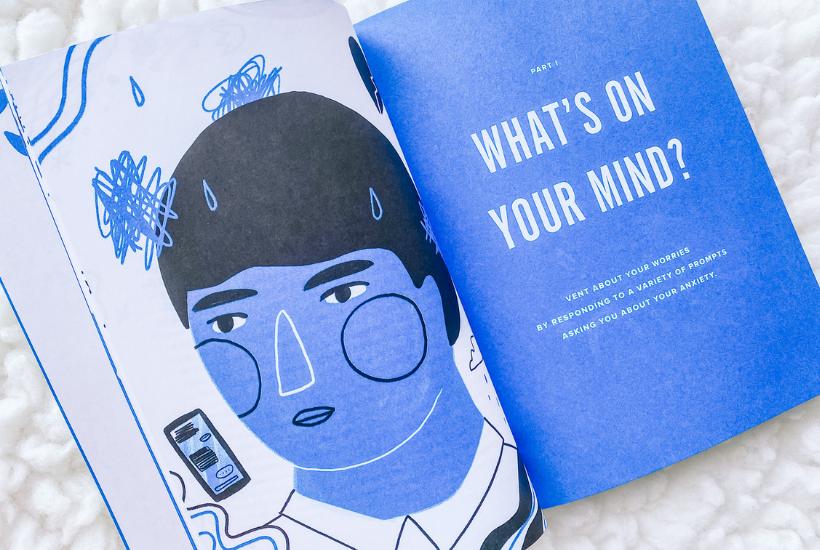
About Goodbye, Anxiety: A Guided Journal for Overcoming Worry
Goodbye, Anxiety is an attractive, appealing, and interactive book that provides a treasure trove of scientifically-based strategies to help young people manage worry. It has a journaling component with 100+ witty and relevant writing prompts related to common teen concerns (to allow readers to “dump” their worries out of their anxious minds and onto paper).
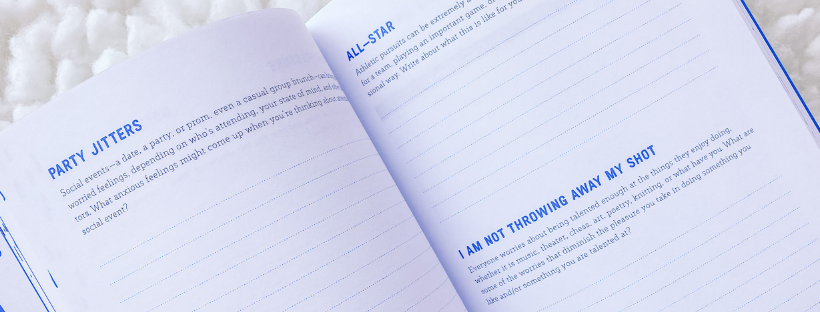
Goodbye, Anxiety also teaches highly effective skills to reduce anxiety, incorporating CBT (cognitive-behavior therapy), DBT (dialectical behavior therapy), and ACT (acceptance and commitment therapy) to help young people challenge worry thoughts and conquer anxious thinking patterns and behaviors.
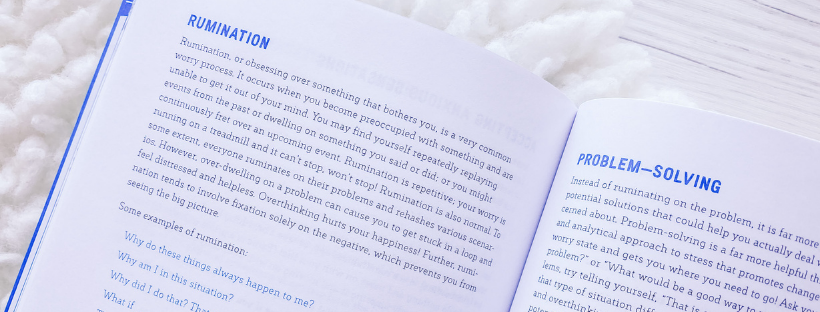
My goal was always to provide teenagers and young adults with practical tools including coping strategies and supportive statements that they can use whenever they feel worry starting to take hold – and to do so in a way that feels easy, accessible, and relevant to the issues they are stressing about (such as friendships, relationships, social media, work, and academic pressure).
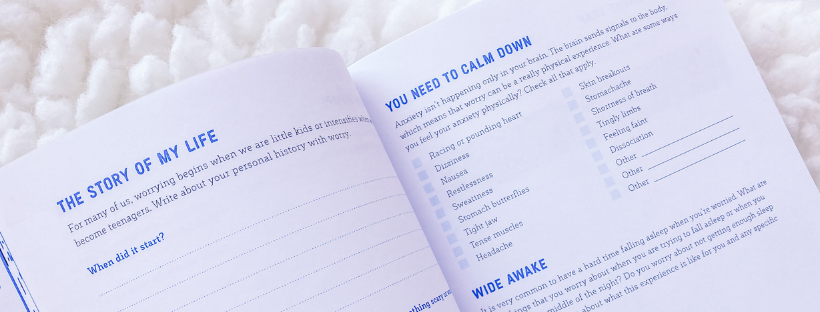
In addition, I share resources (apps, podcasts, videos) about anxiety management in the back of the book and on my website that teens and their parents will find useful.
What are the Best Books for Teens with Anxiety?
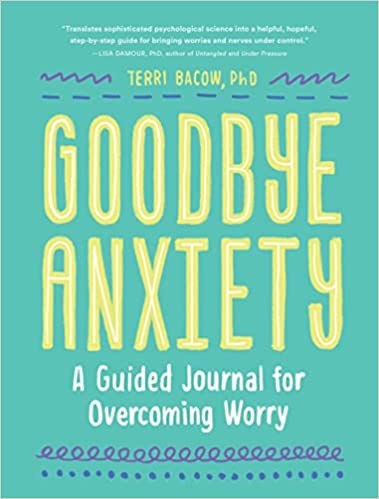
Goodbye Anxiety: A Guided Journal for Overcoming Worry by Terri Bacow, PhD.
As a teen or young adult, things like schoolwork, social media, and navigating friendships can bring tons of stress, and you may often feel anxious and overwhelmed.
That’s why I developed this book with fun and accessible writing exercises designed to diminish worries, insecurities, fears, conflicts, and stressors just for your unique issues.
Even better, you will learn practical coping skills that you can use whenever you feel anxious.
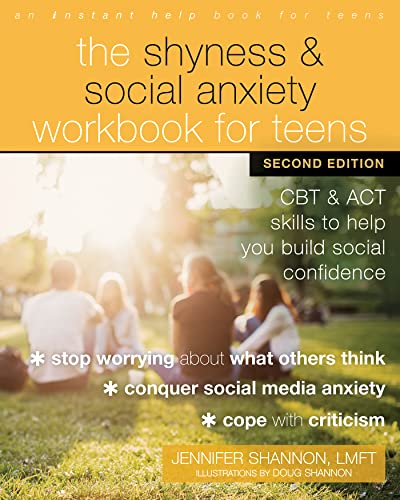
The Shyness and Social Anxiety Workbook for Teens: CBT and ACT Skills To Help You Build Social Confidence by Jennifer Shannon
I frequently use this book with clients struggling with social anxiety. Filled with engaging worksheets and exercises based on CBT, this book will help anyone learn to handle social situations with grace and confidence.
In particular, I appreciate the author’s discussion of the experience of being in the “spotlight” – as people with social anxiety commonly dread situations that put them on the spot. While written for teens, I share the concepts and ideas with adult clients as well and feel it is an incredibly effective resource for overcoming shyness and making connections with others.
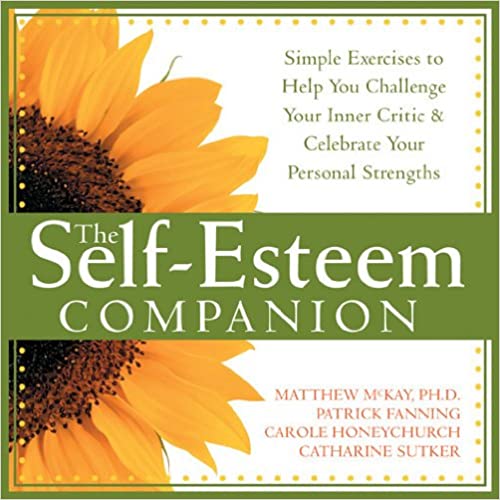
The Self-Esteem Companion: Simple Exercises To Help You Challenge Your Inner Critic And Celebrate Your Personal Strengths by Matthew McKay
This book is a pocket guide – an interactive book designed to work together with the bestseller Self-Esteem, but which works very effectively on its own. Adolescents who struggle with negative self-concept (all of them!) will really benefit from this CBT-based book that helps readers view themselves in a more positive light.
The Self-Esteem Companion has sixty exercises; readers can dip into the book at any time and respond to the ones that resonate with them. It is perfect for teens on the go and teens with shorter attention spans.
My favorite exercise involves identifying and combating “should” statements (the countless things we tell ourselves what we SHOULD do and be) as well as the focus on identifying and talking back to your inner critic.
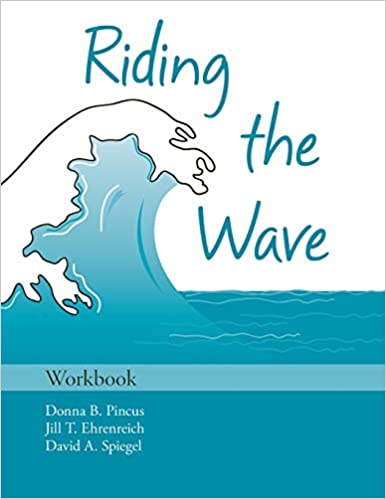
The Riding The Wave Workbook (Treatments That Work) by Donna Pincus
This workbook is THE book to get if you are or have ever experienced a panic attack in your life.
In graduate school, I helped out with the research study that this book is based on. Panic attacks often appear in adolescence, making effective relief for this age group a priority.
This book has tons of easy-to-understand explanations of how to identify and work through panic attacks along with teen-friendly exercises. Further, it includes an optional parent component and an appendix with handouts for parents.
The metaphor of “riding the wave” of your anxiety is incredibly useful, and I regularly use the concepts from this book in my clinical work with anxious clients of all ages to help them find quick relief from panic attacks.
One Comment